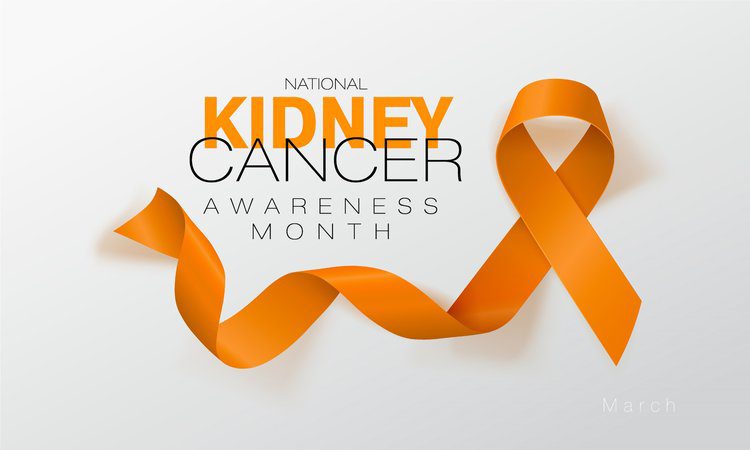Search by Color or Cause


National Kidney Cancer Awareness Month takes place in March. The National Kidney Foundation (NKF) urges all Americans to give their kidneys a second thought and a well-deserved checkup. Kidney cancer is one of the most common cancers in the United States. According to national estimates, there were more than 76,000 new diagnoses and 13,780 deaths in 2021. That’s why March’s Kidney Cancer Awareness Month is so important. During this time we encourage everyone to learn more about kidney cancer. In addition, we encourage you to become aware of common warning signs, prevention, and treatment.
The awareness color for kidney cancer is orange. Wear an orange enamel awareness ribbon pin, fabric ribbon, or orange silicone awareness wristband bracelet to raise awareness for this important awareness month.
The orange ribbon represents kidney cancer awareness. Personalized Cause offers a wide variety of kidney cancer support and awareness products including pins, ribbons and wristbands to show your support to and for a loved one fighting kidney cancer.
Kidneys filter 200 liters of blood a day, help regulate blood pressure, and direct red blood cell production. But they are also prone to disease. For example, 1 in 3 Americans is at risk for kidney disease due to diabetes, high blood pressure or a family history of kidney failure. There are more than 30 million Americans who already have kidney disease. Most don’t know it because there are often no symptoms until the disease has progressed.
During National Kidney Cancer Awareness Month, in conjunction with the National Kidney Foundation, risk free kidney screening takes place throughout the United States. On World Kidney Day and during the Month of March, the National Kidney Foundation offers free screenings to those most at risk for kidney disease. This includes anyone with diabetes, high blood pressure or a family history of kidney failure.
Reducing or eliminating certain risk factors can help fight kidney cancer. Smoking or the misuse of certain pain medicines are common factors that can lead to kidney cancer.
Additional common kidney cancer risk factors include:
Beyond smoking, diet, blood pressure, and pain medicines, kidney cancer can occur more commonly in some genetic conditions than in others. If your family has a history of kidney cancer, Hippel-Lindau disease, or kidney issues, your risk of developing kidney cancer is much higher. In addition to genetic and hereditary risk factors, people who have or had certain diseases may also be at higher risk of developing kidney cancer:
Depending on the severity of a person’s kidney cancer, a common treatment for kidney cancer is surgery to remove all or part of the affected organ. Some individuals may also need chemotherapy or radiation therapy after surgery. The purpose is to destroy unseen cancer cells that may remain following the procedure. Individuals with more severe kidney cancer may require molecularly targeted therapy. Another approach is immunotherapy to further destroy unseen cancer cells.
There are many ways in which you can lend your talents to support lifesaving research. Learn how you can become an advocate for cancer research, participate in events to raise awareness, volunteer your time, and share your story of how cancer has affected your life. Advances in cancer research—the many successes, treatments, and therapies created, and lives saved—are made by dedicated scientists with the support of funding. Funding doesn’t just happen. In fact, it requires a community engaged and aware of the needs. There are many ways that you can get involved to rally your community during National Kidney Cancer Awareness Month.
#WorldKidneyDayNKF